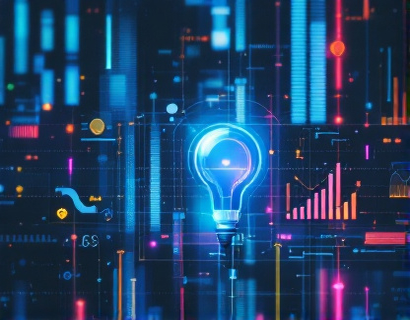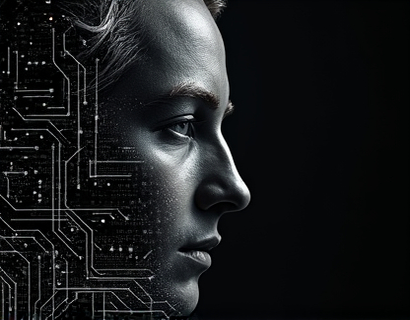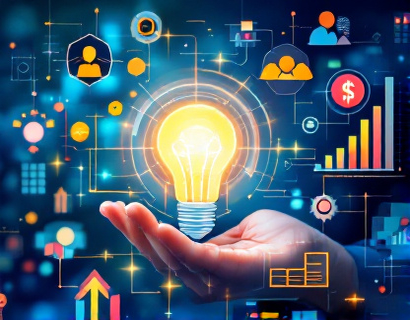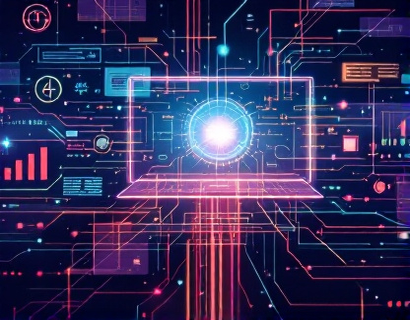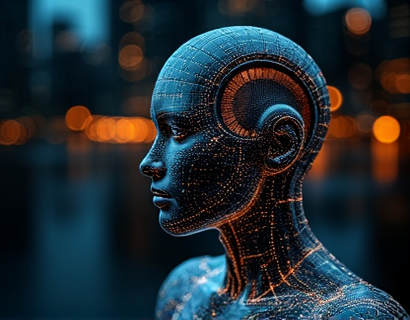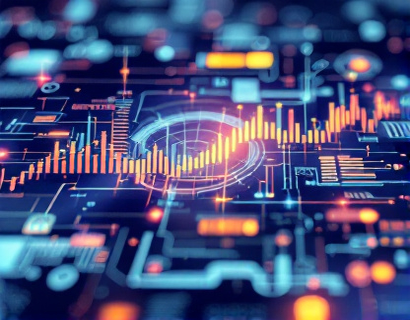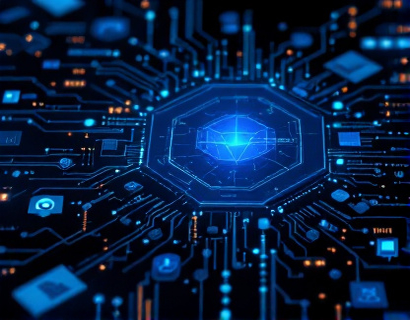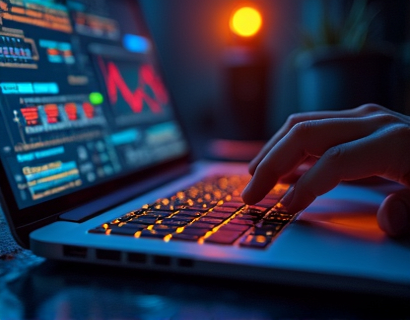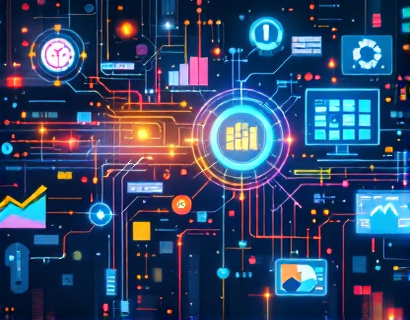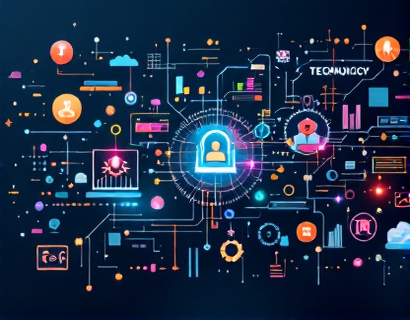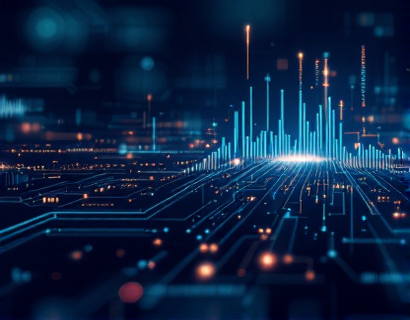Maximizing Digital Transformation: Harnessing the Power of Crypto and AI for Next-Gen Solutions
The digital landscape is undergoing a profound transformation, driven by the convergence of cryptocurrency and artificial intelligence. This fusion is not just a trend but a revolution that is redefining business operations, enhancing user experiences, and opening new avenues for innovation. For tech leaders and early adopters, understanding and leveraging this powerful combination is crucial to staying ahead in the blockchain era.
Cryptocurrency, since its inception with Bitcoin, has evolved beyond being just a digital currency. It has become a foundational technology that underpins a wide array of applications, from decentralized finance (DeFi) to supply chain management. The inherent characteristics of blockchain technology, such as transparency, security, and decentralization, make it an ideal platform for building trust and efficiency in various industries.
Artificial intelligence, on the other hand, is transforming the way businesses operate by enabling automation, predictive analytics, and personalized experiences. When combined with the capabilities of cryptocurrency, AI can achieve even greater heights, creating solutions that are not only intelligent but also secure and trustworthy.
Understanding the Synergy Between Crypto and AI
The synergy between cryptocurrency and AI lies in their complementary strengths. Cryptocurrency provides a decentralized and secure environment, while AI brings intelligence and automation. Together, they can create systems that are resilient, efficient, and capable of handling complex tasks.
One of the key areas where this synergy is evident is in smart contracts. Smart contracts are self-executing contracts with the terms of the agreement directly written into code. When integrated with AI, smart contracts can automate not only straightforward transactions but also complex decision-making processes. For instance, AI can analyze market data in real-time, and the smart contract can execute trades based on predefined conditions, all while ensuring transparency and immutability.
Enhancing Security with Cryptographic Techniques
Security is a paramount concern in any digital transformation effort. Cryptography, the backbone of cryptocurrency, offers robust security measures that can be applied to AI systems. By using cryptographic techniques, AI models can be protected against tampering and unauthorized access. This is particularly important in industries such as healthcare and finance, where data privacy and integrity are critical.
For example, homomorphic encryption allows AI computations to be performed on encrypted data without decrypting it first. This means that sensitive information can be analyzed and used for machine learning without exposing it to potential breaches. Such advancements ensure that businesses can harness the power of AI while maintaining the highest standards of security.
Optimizing AI Performance with Blockchain
AI models, especially deep learning algorithms, require significant computational resources and energy. Blockchain technology can play a role in optimizing these processes by enabling decentralized computing networks. These networks can distribute the computational load across multiple nodes, reducing the burden on any single entity and improving overall efficiency.
Moreover, blockchain can facilitate a more transparent and fair distribution of resources in cloud computing. By using blockchain-based platforms, businesses can pay for the exact amount of computational power they use, eliminating the need for over-provisioning and reducing costs. This not only optimizes AI performance but also promotes sustainable practices in technology.
Personalization and User Experience
One of the most exciting applications of the crypto-AI combination is in enhancing user experiences through personalization. AI algorithms can analyze vast amounts of user data to provide tailored recommendations, predictions, and interactions. When integrated with cryptocurrency, these systems can offer secure and seamless transactions, creating a frictionless experience for users.
For instance, in the realm of e-commerce, AI can curate personalized shopping experiences, suggesting products based on user behavior and preferences. Payments can be processed using cryptocurrency, ensuring fast, secure, and low-cost transactions. This integration not only improves customer satisfaction but also builds trust through the use of transparent and immutable blockchain technology.
Decentralized Data Marketplaces
Decentralized data marketplaces are another innovative application of crypto and AI. These platforms allow data producers to monetize their data while ensuring privacy and control. AI can be used to match data suppliers with buyers based on relevance and value, creating a win-win situation.
In such marketplaces, blockchain ensures that data transactions are secure and transparent, with clear ownership and usage rights. This not only empowers data creators but also provides high-quality data for AI models, enhancing their accuracy and effectiveness. The decentralized nature of these marketplaces also reduces the risk of data monopolies and promotes a more democratic data ecosystem.
Challenges and Considerations
While the potential of combining cryptocurrency and AI is vast, there are several challenges and considerations that must be addressed. One of the primary challenges is the regulatory landscape. As both crypto and AI are relatively new and rapidly evolving fields, regulations are still catching up. Businesses must navigate this complex environment carefully to ensure compliance and avoid legal pitfalls.
Another challenge is the technical complexity involved in integrating these technologies. Developing systems that seamlessly combine blockchain and AI requires expertise in both domains. Organizations need to invest in skilled personnel or partner with experts to overcome this hurdle.
Additionally, there is the issue of scalability. While blockchain offers many benefits, it can sometimes be slow and resource-intensive. However, advancements in blockchain technology, such as layer 2 solutions and more efficient consensus mechanisms, are addressing these scalability concerns. AI, when optimized and deployed on efficient infrastructure, can also handle large-scale operations without compromising performance.
Case Studies and Real-World Applications
Several organizations are already leveraging the power of crypto and AI to drive innovation and transformation. For example, a leading insurance company has implemented an AI-driven claims processing system that uses smart contracts to automate and expedite the claims process. This not only reduces processing time but also minimizes fraud through transparent and immutable records.
In the healthcare sector, a startup has developed a platform that uses AI to analyze medical data and provide diagnostic recommendations. The platform is built on a blockchain to ensure data privacy and security, allowing healthcare providers to trust the insights provided. This integration has led to more accurate diagnoses and personalized treatment plans.
Another notable example is in the supply chain industry, where a major retailer has adopted a blockchain-based system to track the provenance and movement of goods. AI algorithms analyze this data to optimize inventory management and predict demand, reducing waste and improving efficiency. The transparent and secure nature of the blockchain ensures that all stakeholders have access to accurate and up-to-date information.
Future Trends and Opportunities
The future of digital transformation through the combination of cryptocurrency and AI is promising. As technology continues to evolve, we can expect to see more sophisticated applications and broader adoption across various industries.
One emerging trend is the integration of AI with other blockchain applications, such as non-fungible tokens (NFTs) and decentralized autonomous organizations (DAOs). NFTs can represent unique digital assets, and AI can enhance their value by providing provenance and authenticity. DAOs, powered by AI, can make decentralized decision-making more efficient and democratic.
Another area of opportunity is the development of AI-driven financial services on blockchain platforms. DeFi protocols, for instance, are already leveraging AI to create more robust and user-friendly financial products. These innovations have the potential to democratize access to financial services, making them more inclusive and accessible.
Furthermore, the rise of edge computing, combined with blockchain and AI, can lead to more efficient and responsive systems. By processing data closer to the source, edge computing reduces latency and bandwidth usage, making real-time AI applications more feasible and effective.
Conclusion
The fusion of cryptocurrency and AI represents a powerful force in the digital transformation landscape. By harnessing the security, transparency, and automation capabilities of blockchain, combined with the intelligence and efficiency of AI, businesses can unlock new possibilities and drive innovation. For tech leaders and early adopters, embracing this synergy is not just an option but a necessity to thrive in the blockchain revolution.
As the technology continues to mature, the opportunities for creating next-gen solutions will only grow. By staying informed, investing in the right expertise, and addressing the challenges head-on, organizations can position themselves at the forefront of this exciting new era.




